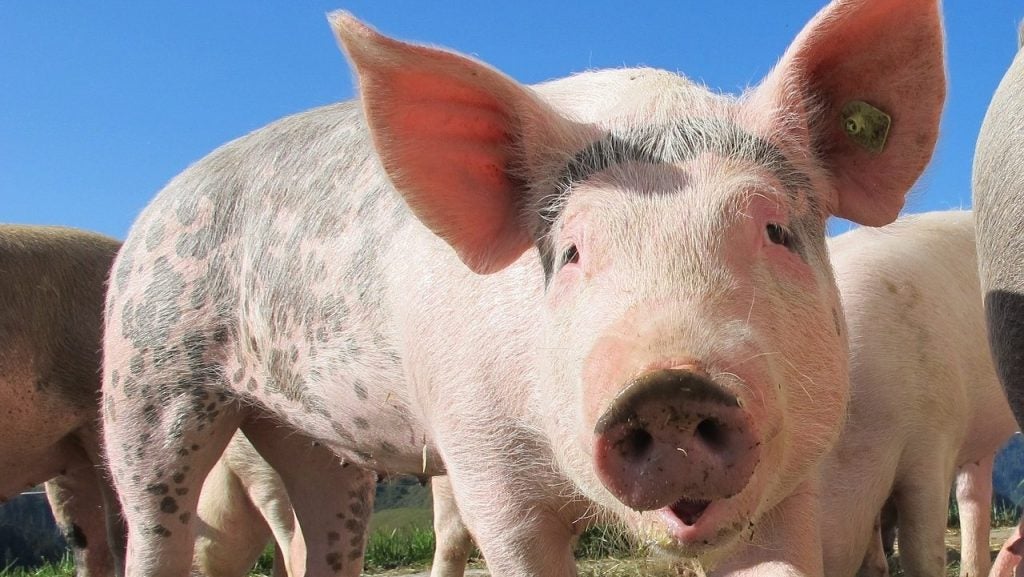The European Commission is “analysing” the opening of an investigation by China into so-called anti-dumping duties on EU pork and its by-products.
China’s commerce ministry launched the probe yesterday (17 June), purportedly in retaliation to the EC’s “provisional” notification last week to impose tariffs on imported Chinese battery electric vehicles (BEV).
In making that proposal, the EC concluded, following an investigation, that the BEV “value chain in China benefits from unfair subsidisation, which is causing a threat of economic injury to EU BEV producers”.
Olof Gill, the EC’s spokesperson for trade and agriculture, was questioned yesterday during a press briefing on the bloc’s response to China’s EU pork investigation, which the country’s commerce ministry said could take up to a year to complete.
“The Commission takes note of the decision by the government of China to initiate an anti-dumping investigation on European imports of pork and swine by-products. The commission is now analysing the application,” Gill said.
“We will follow the proceedings very closely in coordination with EU industry and our member states. And we will intervene as appropriate to ensure that the investigation fully complies with all relevant World Trade Organization rules.”
The tit-for-tat between the EC and China has sparked concerns of a trade war, which could hurt not only EU processors and suppliers of pork financially but also electric vehicle exporters in China if import duties are imposed.
Denmark, for instance, exported $556m worth of pork to China last year, according to the industry representative body, the Danish Agriculture and Food Council, which said it is “deeply concerned by the outlook of a trade conflict”.
And a similar organisation in Spain – the White-Capped Pork Agri-Food Interprofessional, or Interporc – said the country shipped more than 560,000 tonnes of pork and processed pork products to China in 2023 valued at €1.22bn ($1.31bn).
Ulrik Bremholm, chairman of the Danish Agriculture and Food Council, expressed his concerns in a statement provided to Just Food.
“As a small open economy, Denmark has always benefited from free trade with other countries. A trade war only has losers,” Bremholm said.
“The Danish meat industry will be hit incredibly hard by potential Chinese restrictions on European meat and therefore, I would like to urge all parties involved to consider the consequences on production and food security if the situation escalates.”
In the statement, the Council stressed the need to “de-escalate the situation”, adding that a potential trade war between the EU and China would be “catastrophic”.
Interporc called for “understanding in trade relations” between the two parties to avoid a trade conflict and said it was open to provide China with whatever documentation they need to counter the anti-dumping allegations.
“With absolute respect for the work of the European, Spanish and Chinese authorities, which are in charge of regulating commercial relations, the Interprofessional, which brings together the entire pork chain and the meat industry associations, expresses its wish that this good harmony is maintained in relationships,” Interporc said in a statement posted on its website.
Putting forward the duty proposals on electric vehicles from China on 12 June, the EC said its investigation “also examined the likely consequences and impact of measures on importers, users and consumers of BEVs in the EU”.
It added the “Commission has reached out to Chinese authorities to discuss these findings and explore possible ways to resolve the issues identified in a WTO-compatible manner”.
If an “effective solution” is not found, the EC is proposing to impose duties on BEVs from 4 July, ranging from 17.4% to 38.1%.
EC spokesperson Gill said yesterday its investigation has been “fact-based” before initiating the so-called disclosure step with China.
“The important thing to retain here is that China and Chinese companies enjoy their fully respected procedural rights to participate in the investigation,” he said.
“And they have standing both before the EU courts and dispute settlement at the WTO. So that's the correct and appropriate mechanism for China to make its views known in relation to our investigation.”









